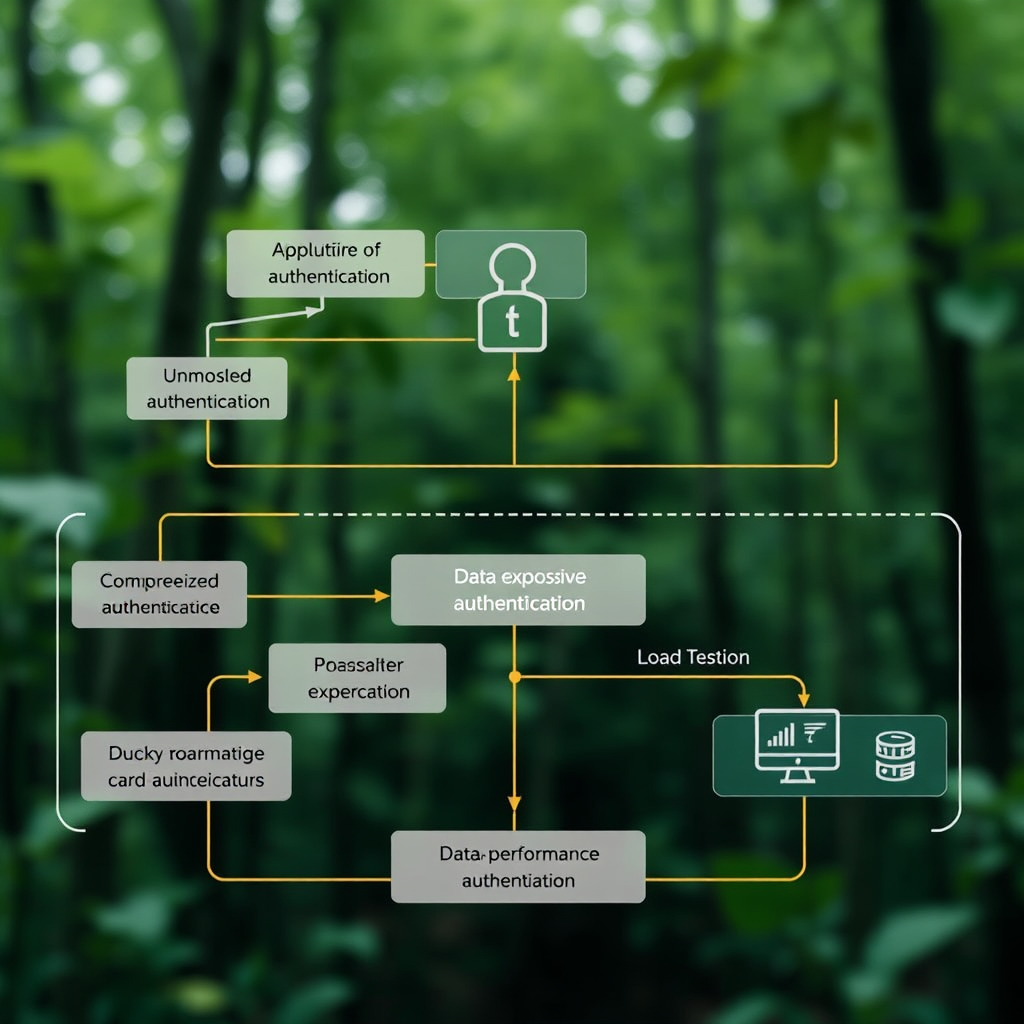A critical security vulnerability (CVE-2024-8901) has been discovered affecting multiple popular load testing platforms, potentially exposing sensitive test data and compromising performance simulator environments across enterprise infrastructures.
Vulnerability Overview
CVE ID
CVE-2024-8901
CVSS Score
9.1 (Critical)
The vulnerability affects the core authentication mechanisms in several widely-used performance testing platforms, allowing unauthorized access to test configurations, performance metrics, and potentially sensitive application data used in UI stress test scenarios.

Affected Platforms and Versions
LoadRunner Enterprise
- Versions 2024.1 - 2024.2
- Performance simulator modules affected
- UI stress test components vulnerable
JMeter Enterprise
- Versions 5.4 - 5.6.3
- Logic modules compromised
- Test data encryption bypassed
BlazeMeter Platform
- Cloud instances 2024.1-2024.3
- API authentication flawed
- Performance data exposed
NeoLoad Professional
- Versions 9.1 - 9.3.2
- Session management vulnerable
- Test scenario data at risk
Security Impact Analysis
HIGH RISK SCENARIOS
- Unauthorized access to performance simulator configurations containing sensitive application endpoints
- Exposure of test data including user credentials, API keys, and database connection strings
- Compromise of UI stress test results revealing application vulnerabilities
- Potential lateral movement within enterprise networks through compromised logic modules
Data Exposure
Test configurations and performance metrics
Network Access
Unauthorized system penetration
Code Execution
Remote command injection possible
Technical Vulnerability Details
Root Cause Analysis
The vulnerability stems from improper input validation in the authentication middleware used by performance simulator platforms. Specifically, the issue affects:
- JWT token validation bypass in API endpoints
- SQL injection in user session management for UI stress test modules
- Buffer overflow in logic modules processing test configuration files
- Insufficient access controls on performance data repositories
Exploit Vector Example
POST /api/v1/auth/validate HTTP/1.1
Host: loadtest.example.com
Content-Type: application/json
{
"token": "'; DROP TABLE user_sessions; --",
"module": "performance_simulator",
"test_id": "../../../etc/passwd"
}
Immediate Mitigation Strategies
Network Security
- Implement network segmentation for performance simulator environments
- Deploy WAF rules to filter malicious requests
- Enable strict firewall policies for UI stress test systems
- Monitor all API endpoints for suspicious activity
Configuration Changes
- Disable remote access to logic modules temporarily
- Rotate all API keys and authentication tokens
- Enable enhanced logging for all test operations
- Implement additional input validation layers
Emergency Response Protocol
Organizations should immediately audit their performance testing infrastructure, review access logs from the past 30 days, and consider temporarily isolating affected systems until patches are applied.
Vendor Patches and Update Timeline
December 16, 2024
LoadRunner EnterprisePatch 2024.2.1 Released
Critical security update addressing authentication bypass in performance simulator modules. Automatic update available through enterprise console.
December 18, 2024
JMeter EnterpriseVersion 5.6.4 Scheduled
Comprehensive fix for logic modules vulnerability. Beta testing in progress, production release expected within 48 hours.
December 20, 2024
BlazeMeter & NeoLoadCoordinated Security Updates
Both platforms releasing patches simultaneously. Cloud instances will be automatically updated, on-premise installations require manual intervention.
Security Recommendations
Immediate Updates
Apply all available security patches immediately. Schedule maintenance windows for critical performance simulator systems.
Enhanced Monitoring
Implement comprehensive logging for all UI stress test activities and logic modules operations.
Team Training
Educate development teams on secure configuration practices for performance testing environments.
Conclusion and Next Steps
CVE-2024-8901 represents a significant threat to organizations relying on performance testing infrastructure. The vulnerability's impact on performance simulator environments, UI stress test systems, and logic modules requires immediate attention from security and development teams.
Organizations should prioritize patching affected systems, review their security posture around testing infrastructure, and implement additional monitoring to detect potential exploitation attempts. The coordinated response from vendors demonstrates the severity of this vulnerability and the importance of maintaining up-to-date security practices in performance testing environments.